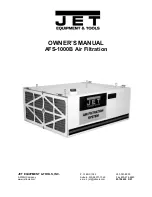
5
NOTE
All the pictures in this manual are for explanation purpose
only. They may be slightly different from the air conditioner you
purchased(depend on model).The actual shape shall prevail.
4. INSTALL THE CONNECTING PIPE
Check whether the height drop between the indoor unit and
outdoor unit, the length of refrigerant pipe, and the number of the
bends meet the following requirements:
Fig.4-1
ODU
Air inlet
Mounting
bracket
Air outlet
Refrigerant pipe
connector
4.1 Refrigerant piping
CAUTION
Please pay attention to avoid the components while connect to
the connecting pipes.
To prevent the refrigerant piping from oxidizing inside when
welding, it is necessary to charge nitrogen, or oxide will chock
the circulation system.
The indoor and outdoor connecting pipe interface and power line
outlet
Vavious piping and viring patterns can be selected,such as out from
the front ,the back the side ,and undersurface, etc. (The follow display
the locations of several piping and wiring knock-off interfaces)
Table 4-1
Fat pipe
Front out pipe
Side out pipe
Back out pipe
Undersurface out pipe
CAUTION
Side out pipe: please remove the L-shape metal plate, otherwise can
not wiring.
Back out pipe:please wipe off the piping support rubber blanket beside
the inner outlet pipe cover of the machine while back side getting out
pipes.
Front out pipe: cut the frontal hole of the pipe-outlet plate.The method
of the out pipe in the same way of the back out pipe. Undersurface
outlet pipe: the knock out should from inside to outside, and then
piping and wiring through this.Pay attention to the piping the fat
connecting pipe should out from the largest hole, otherwise the pipes
will be rubbed. Please do the moth proofing for the knocked out hole,
to avoid the pest processing into and destroy the components.
4.2 Leak Detection
Use soapy water or a leak detector to check whether air leaks at each
joint.
A and B indicate check valves of ODU.
C and D indicate IDU connecting pipe ports.
Fig. 4-2
IDU check point
ODU check point
B
A
D
C
4.3 Heat Insulation
Carry out heat insulation treatment for the pipes at the gas and
liquid sides respectively. Pipes on the liquid and air sides have a low
temperature during cooling. Take sufcient insulation measures to
prevent condensation (see the fgure on the right).
The gas-side pipe must be treated with the closed-cell foam
insulation material, which reaches the non-fammable level of B1
and heat resistance of over 120°C.
When the outer diameter of the copper pipe is not greater than
Φ12.7 mm, the thickness of insulation layer should be greater than
15 mm.
When the outer diameter of copper pipe is equal to or greater than
Φ15.9 mm, the thickness of insulation layer should be greater than
20 mm.
The attached insulation material for the part of the IDU where the
pipe connects must undergo heat insulation treatment that aves no
gaps.
Fig. 4-3
The unit body
Affiliated heat pump belt
Site pipe side
Cut from upward
Summary of Contents for KMF-120 DVN4
Page 16: ......


































